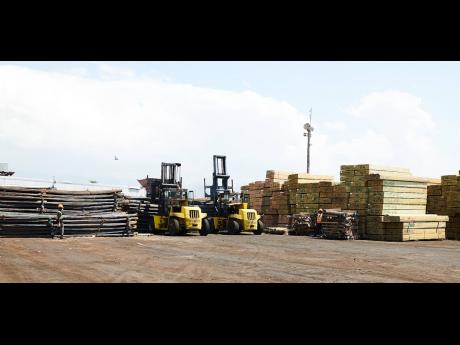Hardware supplies more expensive, but building activity undeterred
Logistical delays, material shortages and production problems have been pushing up hardware sector prices, but it’s had no discernible impact on demand for hardware items, according to sector operators. Like the wider construction market, hardware...
Logistical delays, material shortages and production problems have been pushing up hardware sector prices, but it’s had no discernible impact on demand for hardware items, according to sector operators.
Like the wider construction market, hardware merchants whose business depend on thriving building activity have experienced steady sales throughout the pandemic, even as the cost of such products have been on the rise.
“Worldwide, we’ve seen where manufacturing costs have increased due to staff shortages; added to that is the increase in shipping costs that certainly pushed up prices. But it didn’t seem to matter to regular consumers and developers alike,” said CEO at Atlantic Hardware Donald Fung, one of the business operators polled for this story.
The demand has continued into 2021, with Fung noting that Atlantic’s “unit sales have a year-to-date increase of 41 per cent”.
“We service clients islandwide and we’re seeing the same trend right around,” he said. His company stocks some 3,000 items, including boards, doors and hinges, roofing materials and tools.
There is no centralised data source for hardware prices, but various merchants polled by the Financial Gleaner have said that, broadly, the cost of their construction materials has increased within the region of 30 per cent for paints and some fixtures, to between 60 per cent and 100 per cent for steel and lumber, with the lumber prices showing the biggest spike; while cement and blocks have remained relatively stable.
Construction was one of the sectors allowed to operate during the pandemic, which helped keep the sector above water during the crisis, but Baron Stewart, owner of Stewart’s Hardware, further theorises that building projects continued unchecked because some of the activity was financed from foreign inflows.
“When people start construction, they’re probably so committed that they can’t pull back. They act on the need to carry these projects to completion,” he said from his base in May Pen, Clarendon.
Stewart, whose company serves clients from St Catherine, Clarendon, Manchester and St Elizabeth, says he has taken note that a number of persons from the diaspora have been pushing ahead with their building projects during the crisis, taking advantage of the fact that Jamaica’s construction sector remained open during the lockdown.
Over one full year of the pandemic, the value of construction output has increased from $144 billion at year ending March 2020 to $157 billion as of March 2021. It was the only goods-producing sector to increase in value, even as economic output contracted overall by around 11-12 per cent over the pandemic year.

